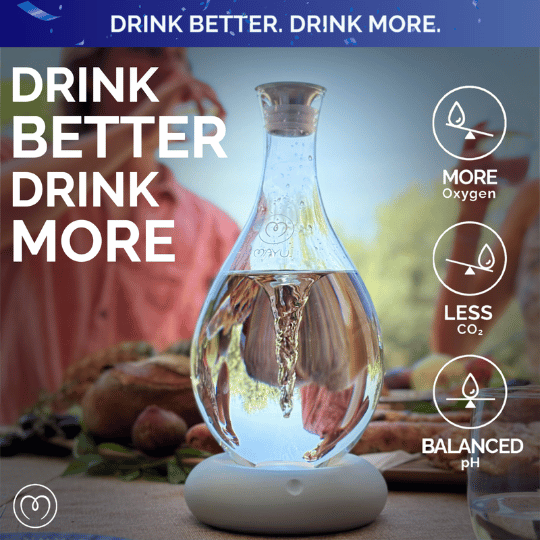Red wine, a beverage often associated with elegance and celebration, has been a part of human culture for millennia.
Beyond its rich flavors and social allure, red wine has piqued the interest of scientists and health enthusiasts alike for its potential health benefits.

Understanding the effects of red wine on well-being is crucial, as it allows us to enjoy this drink responsibly while potentially reaping its health benefits.
Brief History of Red Wine
The history of red wine dates back to around 6000 BC, with its origins traced to the Caucasus region (modern-day Georgia). Wine production then spread to the Middle East and Egypt, becoming a staple in various ancient civilizations.
The Greeks and Romans further propagated wine culture, considering it a divine gift. The Roman god Bacchus, known as Dionysus in Greek mythology, was revered as the god of wine, pleasure, and festivity. It is said that his followers would indulge in ecstatic celebrations, believing wine to be a source of divine inspiration and ecstasy.
Throughout history, red wine has held significant cultural and religious importance. In ancient Egypt, wine was buried with the dead to ensure a pleasant afterlife. In Christianity, red wine symbolizes the blood of Christ during the Eucharist. Wine’s prominence in religious rituals and social gatherings highlights its enduring importance across different cultures and eras.
Health Benefits of Red Wine
Red wine has long been associated with various health benefits. Recent studies continue to reveal how moderate consumption of red wine can contribute to improved cardiovascular health, reduced inflammation, and overall well-being.
Antioxidants and Resveratrol
One of the primary health benefits of red wine is its high content of antioxidants, particularly resveratrol.
Resveratrol, found in the skins of red grapes, has been linked to various health benefits, including improved heart health and longevity.
Antioxidants combat oxidative stress and inflammation, which are underlying factors in many chronic diseases.
Cardiovascular Health
Moderate red wine consumption has been associated with a reduced risk of cardiovascular diseases.
The “French Paradox” is a well-known concept where despite having a diet high in saturated fats, the French population has a relatively low incidence of heart disease, partially attributed to their regular consumption of red wine.
Polyphenols in red wine, such as flavonoids and tannins, help maintain blood vessel health, reduce bad cholesterol (LDL), and increase good cholesterol (HDL). There’s also evidence that red wine can help with cognitive function and reduce alzheimer’s risk.

Anti-inflammatory Properties
Red wine also possesses anti-inflammatory properties, which can be beneficial in preventing chronic diseases such as arthritis and certain cancers. Resveratrol, in particular, has been shown to inhibit enzymes that promote inflammation in the body.
Another study in the Journal of Nutrition highlighted that moderate red wine drinkers had a 25% lower incidence of chronic inflammatory conditions. These statistics underscore the potential health benefits of incorporating red wine into a balanced diet, while also emphasizing the importance of moderation.
Potential Risks and Concerns
While red wine can offer health benefits, it is essential to acknowledge the potential risks associated with alcohol consumption.
Excessive drinking can lead to a range of health issues, including liver disease, addiction, and an increased risk of certain cancers.
Alcohol can also negatively affect mental health, contributing to anxiety and depression. Understanding these risks is crucial for making informed decisions about alcohol consumption.
Recommended Daily Intake
Health experts recommend moderation when it comes to red wine consumption. The American Heart Association suggests that men should limit themselves to two glasses per day, while women should not exceed one glass per day. These guidelines aim to balance the potential benefits of red wine with the risks associated with excessive alcohol intake.
In 2023, the World Health Organization reported that alcohol-related deaths accounted for 5.3% of all deaths globally.
These figures highlight the critical need for responsible drinking practices.
Comparison with Other Alcoholic Beverages
When comparing red wine to other alcoholic beverages, it stands out due to its higher content of beneficial compounds like resveratrol and flavonoids. Beer and spirits, while also enjoyable in moderation, do not offer the same level of antioxidants and heart-healthy benefits.
Red Wine vs. White Wine and Other Types
Red wine generally has more health benefits compared to white wine, primarily due to the higher concentration of polyphenols, which are found in the grape skins that are fermented with the wine.
White wine, although still beneficial, lacks some of the potent antioxidants present in red wine. Other types of wine, such as rosé, fall somewhere in between but still do not match the antioxidant levels found in red wine.
Practical Tips for Consumption
How to Choose Quality Red Wine
Choosing a quality red wine can enhance your experience and ensure you get the most out of its health benefits. Here are some tips:
- Know the Regions: Some of the best red wines come from regions like Bordeaux, Napa Valley, and Tuscany. Wines from these areas are often of higher quality due to the favorable growing conditions.
- Check the Vintage: The year the wine was produced, or its vintage, can significantly impact its taste and quality. Research which years were good for the region and variety you’re interested in.
- Read the Labels: Look for wines with detailed labels that include information about the vineyard, grape variety, and production methods. Organic and biodynamic wines are often a good choice as they are produced with fewer chemicals.
- Seek Recommendations: Don’t hesitate to ask for recommendations from wine shop staff or read reviews from trusted sources. Sommeliers and experienced wine enthusiasts can provide valuable insights.
Tips for Moderate and Responsible Drinking
- Follow the Guidelines: Stick to the recommended daily intake – up to one glass per day for women and up to two glasses per day for men.
- Pair with Food: Consuming red wine with meals can help slow the absorption of alcohol and enhance the dining experience.
- Stay Hydrated: Drink plenty of water alongside your wine to stay hydrated and minimize the risk of hangovers.
- Avoid Drinking on an Empty Stomach: Food can help mitigate the effects of alcohol and prevent it from hitting your system too quickly.
- Take Breaks: Consider having alcohol-free days each week to give your body a break and reduce the risk of developing a dependency.
Wrapping Up
Red wine, when consumed in moderation, can offer a range of health benefits, from improved cardiovascular health to reduced inflammation. The antioxidants, particularly resveratrol, found in red wine are key contributors to these benefits.
However, it is crucial to balance these benefits with the potential risks associated with excessive alcohol consumption. Understanding the recommended daily intake and adhering to it can help mitigate these risks.
Enjoying a glass of red wine can be a delightful part of a healthy lifestyle if done responsibly.





